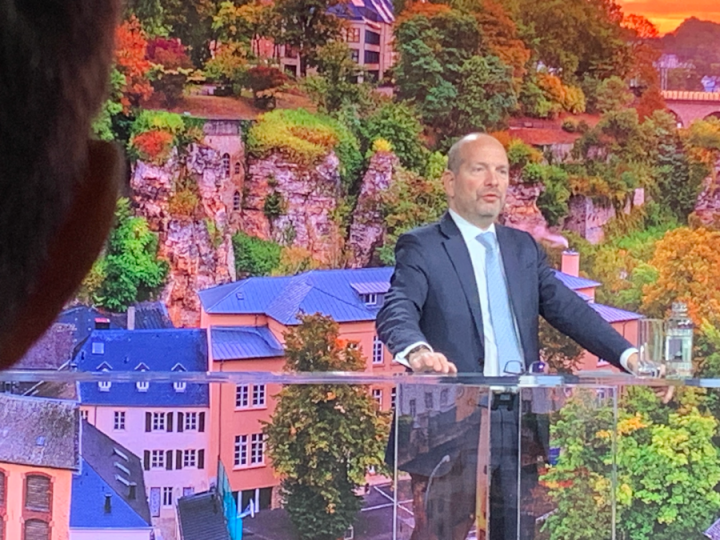
The head of Luxembourg’s fund and asset management industry association on Tuesday gave its full backing to a government plan to make the Grand Duchy’s tax laws friendlier for investors in active ETFs, a product that is experiencing considerable investor interest across Europe.
Jean-Marc Goy, president of the Association of Luxembourg’s Fund and Asset Management, Alfi, told a conference that the tax treatment of active Exchange Traded Funds (ETFs) is “where improvement is needed.”
“Active ETFs have a tremendous rhythm in the US. If Luxembourg wants to have a chance, this needs to be reformed,” Goy said. “Just like passive ETFs, active ETFs should be exempted.”
Luxembourg this year has seen increasing competition from Ireland in the European market for ETFs. Under its existing tax regime, passive ETFs are exempt from the subscription tax, but their active counterparts are considered under the regime as mutual funds and therefore subject to a small tax that is based on the fund’s net asset value.
Strong growth
Even ETF specialists are surprised to see phenomenally strong growth in true active ETFs this year. The latest generation of ETF products, also dubbed ‘ETF 3.0’, is rapidly making its way into portfolios of both institutional and retail investors. The US is leading but Europe is not far behind. Active ETFs are funds that track indices but that have a small active component, removing for example particular underperforming stocks when investing in an equity index.
In the US ETF market, dominated by the likes of Blackrock, Vanguard and State Street Global Advisors, active assets represent about 5 percent of the market while accounting for 25 percent of net inflows. “Europe pivots the same as the US does into different types of structures,” said Ciaran FItzpatrick of State Street in a recent Investment Officer podcast interview.
Within Europe, a trend is emerging where Luxembourg traditional mutual funds are being converted into ETFs. Many of those that invest in US equities then migrate to Ireland to benefit from the US-Irish tax treaty that taxes dividends at 15 percent, compared to 30 percent in Luxembourg. Amundi for example is moving several Luxembourg funds to Ireland. Industry experts have reported that issuers of new active ETFs tend to prefer Dublin as a domicile over Luxembourg.
Luxembourg wants to be ‘cutting edge’
Luxembourg’s new finance minister Gilles Roth, who took office earlier this month, has promised to modernise the country’s legislative and tax framework “to allow our financial centre to stay at the cutting edge”.
“Very concretely, I want to explore reducing the subscription tax for actively managed ETFs,” Roth told an industry event last week. “This is an emerging and growing trend that Luxembourg should not miss out on.”
The tax, known as taxe d’abonnement or ‘subscription tax’, applies a charge between 0.05 per cent and 0.01 per cent on the net assets of funds. It is calculated once a year and then has to be paid in quarterly instalments. The tax is applicable to Ucits, SIFs, Raifs and family wealth management companies known as SPFs.
Earlier this year, Luxembourg already introduced a more favourable tax regime for European long-term investment funds, known as Eltifs.
A reduction on the subscription tax could also help channel more investments into sustainable economic activities and thus strengthen Luxembourg’s role as a green financial centre, the minister said. He has also promised a reform of the profit sharing bonus regime and the expatriate tax regime, and wants to introduce a new “attractive” regime encouraging employees to participate in the capital of the companies they work for.